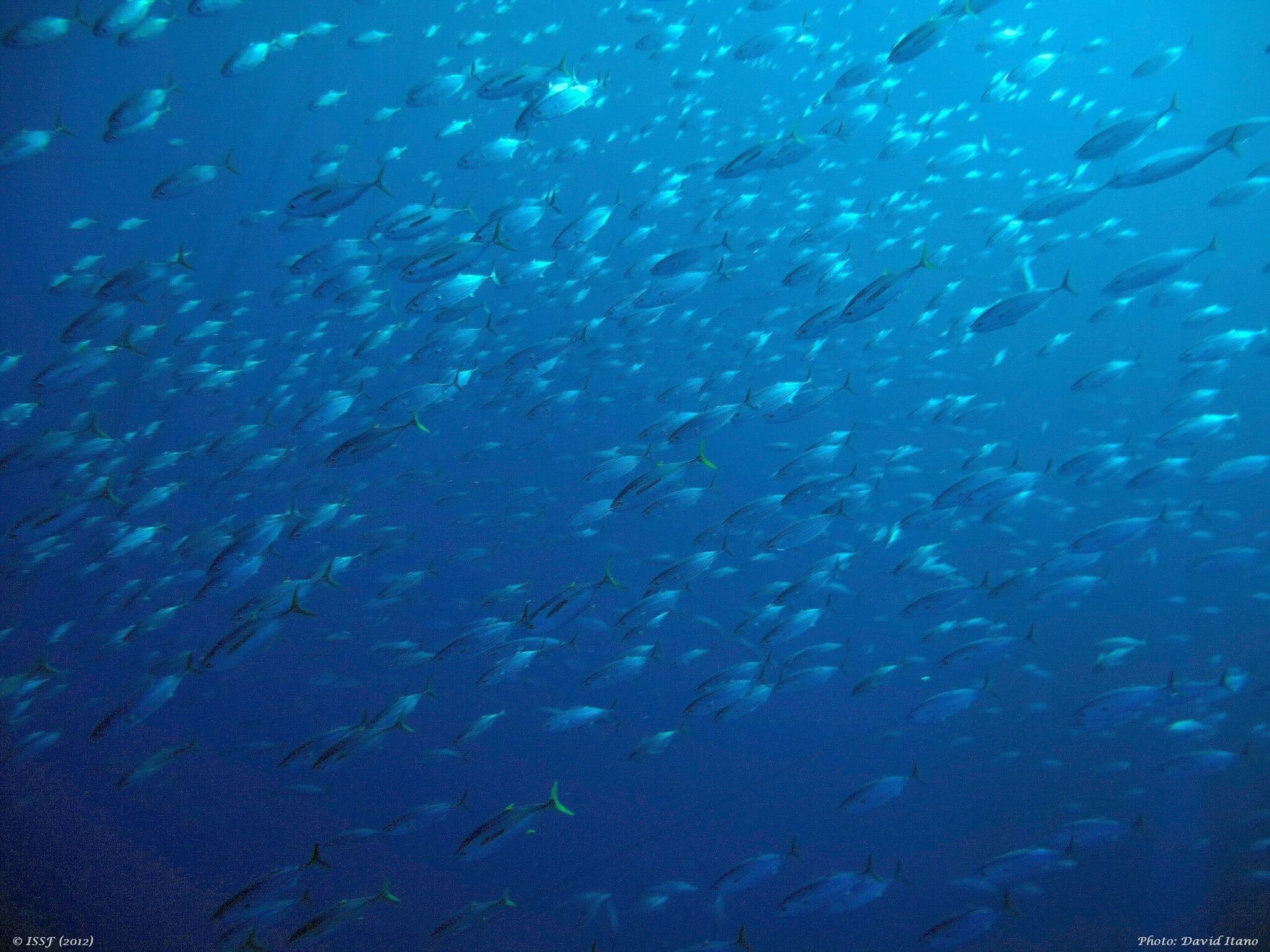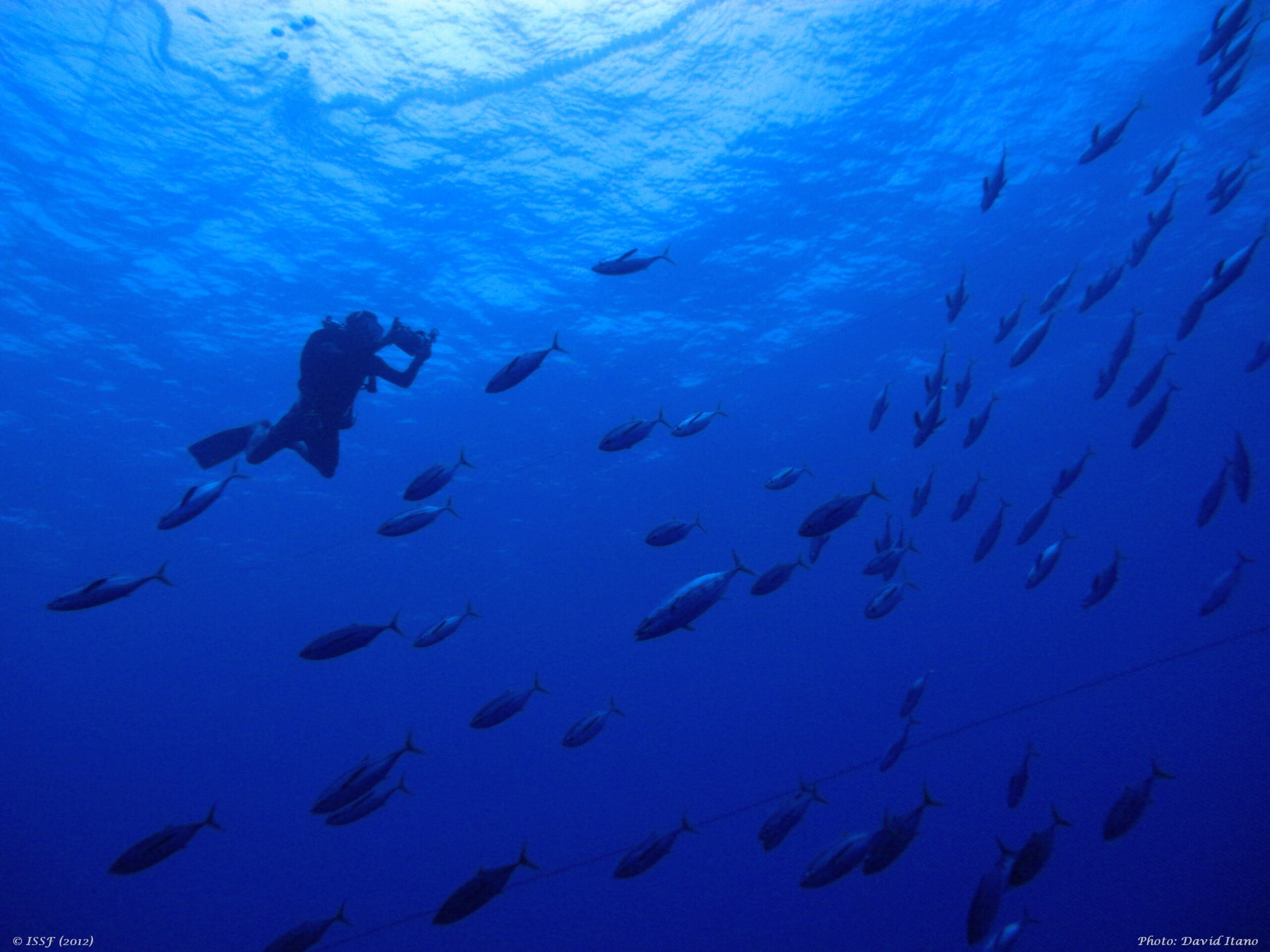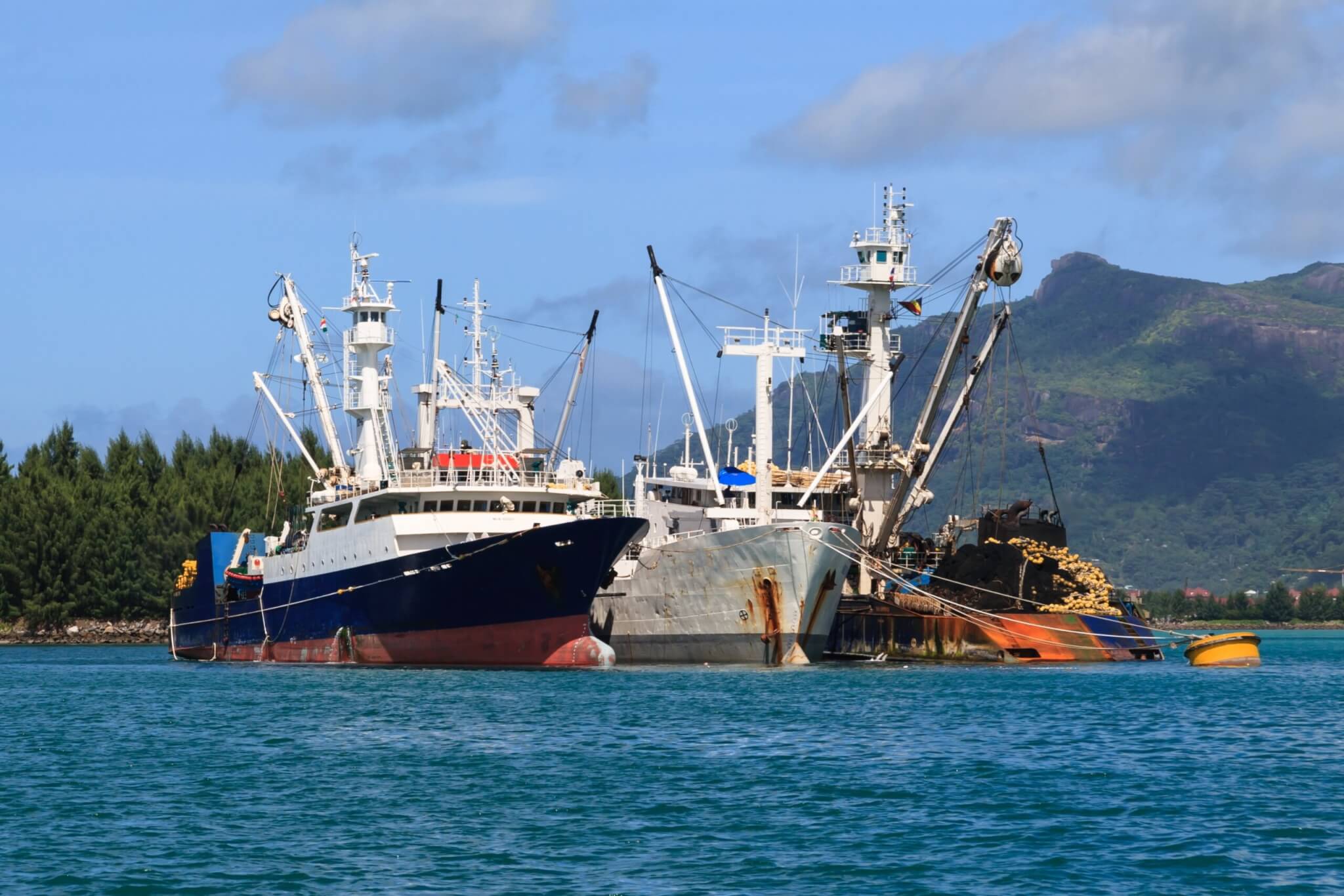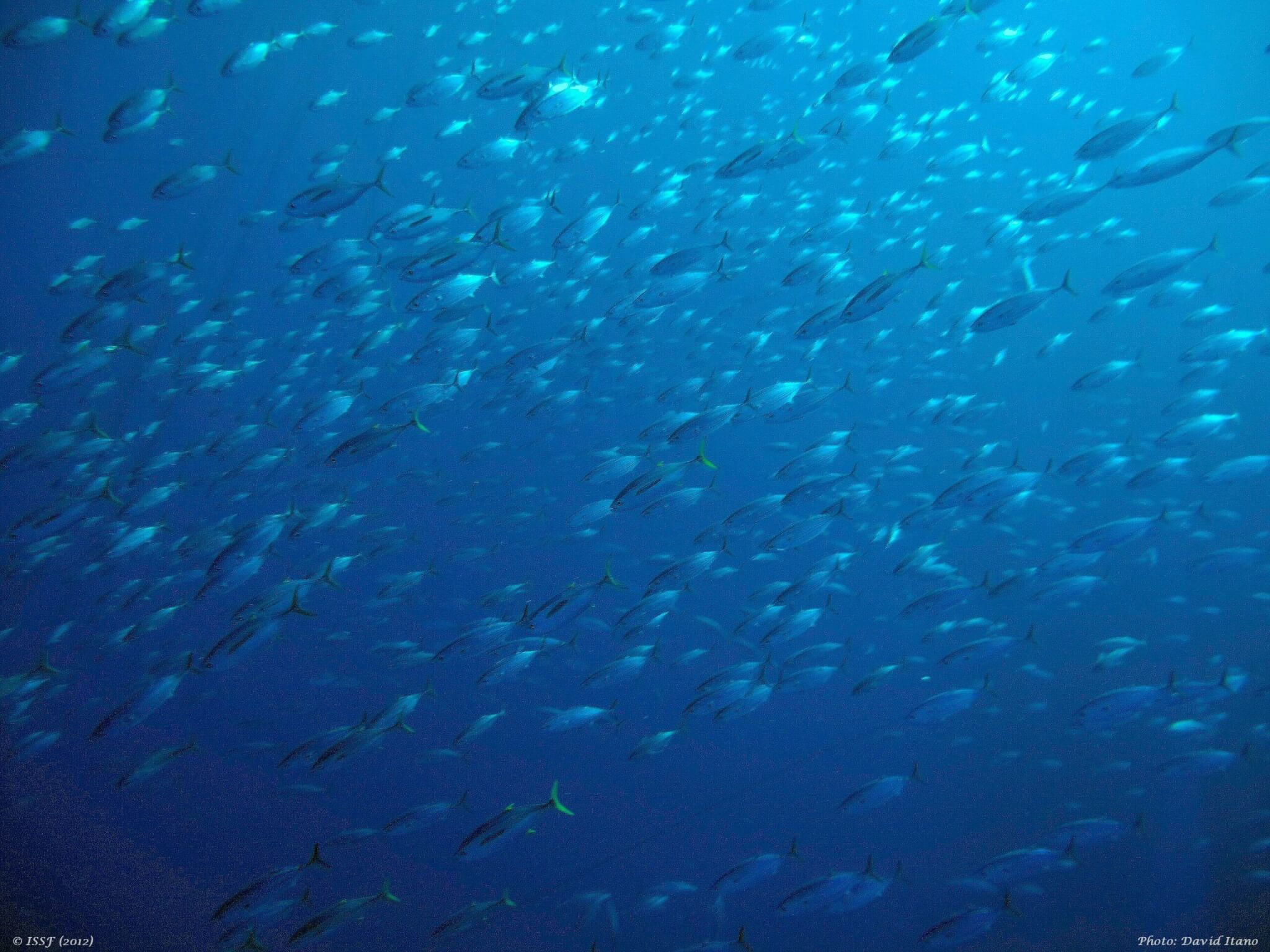Fishing with FADs: Benefits, Concerns, and Solutions | NEW Peer-Reviewed Paper
Peer-Reviewed Article
“Benefits, concerns, and solutions of fishing for tunas with drifting fish aggregation devices”
Two experts from ISSF — Senior Scientist Dr. Gala Moreno and Vice President, Science, Dr. Victor Restrepo — and scientific partners have co-authored a new research paper titled: “Benefits, concerns, and solutions of fishing for tunas with drifting fish aggregation devices” in the journal, Fish and Fisheries.
Authors: Maite Pons, David Kaplan, Gala Moreno, Lauriane Escalle, Francisco Abascal, Martin Hall, Victor Restrepo and Ray Hillborn.
Abstract: Drifting fish aggregating devices (dFADs) are human-made floating objects widely used by tropical tuna purse seine (PS) fisheries to increase catch of target species. However, dFAD use has several negative impacts, including increased potential for overfishing, higher juvenile tuna catch, higher bycatch compared to other PS fishing modes, ghost-fishing, and generation of marine litter. Based on these impacts, some stakeholders, especially environmental non-governmental organizations and other competing fishing industries, suggest that dFADs should be completely banned. We list the pros and cons of dFAD fishing; address how to improve current management; and suggest solutions for the sustainability of dFAD fishing in the long term. A dFAD ban would lead to major changes in the availability and sourcing of tuna for human consumption and decrease the licensing revenue received by many developing states. Most importantly, we argue that tools exist today to manage for, reduce or eliminate most of the negative impacts of dFADs (e.g., bans on discards, limits on active dFADs, biodegradable non-entangling constructions, time-area deployment closures, recovery programs, and full data transparency, among others). Management decisions based on sound scientific reasoning are needed to address the legitimate concerns surrounding dFAD use and ensure the sustainability of both pelagic and coastal eco- systems and tropical tuna PS fisheries.
Read the article in Fish and Fisheries
Featured News
Op-ed: “Pacific Ocean tuna fisheries and the new MSC fisheries standard”
In the world’s largest tuna fishing grounds, an important initiative is underway to ensure fisheries can meet the newest requirements of the leading seafood sustainability certification standard – the Marine Stewardship Council (MSC) fisheries standard.
In a new op-ed, Dr. Victor Restrepo, ISSF’s vice president for science and a member of the MSC Technical Advisory Board, reviews how embracing a new pathway to harvest strategies now is helping some fisheries retain MSC certification, while more work remains for many other stocks.
Read the op-ed in Seafood Source
Featured Graphic
Based on the Fish and Fisheries article, “Benefits, concerns, and solutions of fishing for tunas with drifting fish aggregation devices,” a table shows the potential negative impacts of dFAD use in tuna fisheries on marine ecosystems, alongside potential solutions — plus how those solutions are being implemented across four tuna regional fisheries management organizations (RFMOs).
Featured Report
Best Practices for FAD Management in Tropical Tuna Purse Seine Fisheries
ISSF 2023-10: Recommended Best Practices for FAD Management in Tropical Tuna Purse Seine Fisheries explores six elements of management that ISSF considers to be of utmost importance for proper management of FAD fisheries:
- Complying with flag state and RFMO reporting requirements by set type
- Voluntarily reporting additional FAD buoy data for use by RFMO science bodies
- Supporting science-based FAD limits
- Using non-entangling FADs to reduce ghost fishing
- Mitigating other environmental impacts due to FAD loss including through the use of biodegradable FADs and FAD recovery policies
- Implementing further mitigation efforts for silky sharks
We provide practical examples that fleets could adopt as their FAD management policies.



